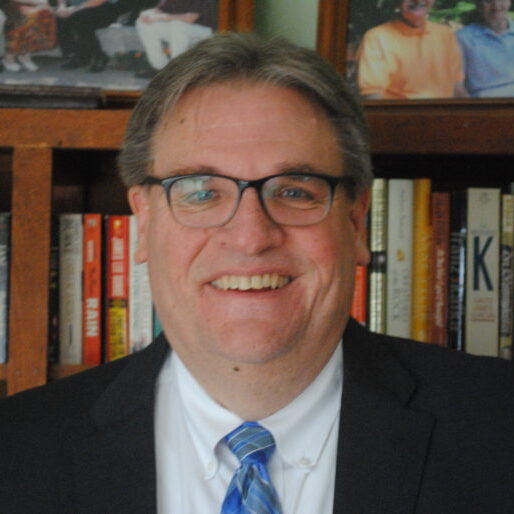Home » Doug Bratt » Authors » Page 43

Rev. Douglas Bratt is a Minister of the Word in the Christian Reformed Church in North America. After being ordained in 1987, he served Christian Reformed churches in northeastern Iowa and western Michigan. He is in his 25th year of serving the Silver Spring (MD) Christian Reformed Church. He enjoys spending time with his grandchildren, reading good literature, and watching televised sports in his free time.
Doug began writing sermon commentaries for the CEP website in 2006 and started writing weekly in 2012.
Psalm 19
Commentary
Proper 19B
Comments, Observations, and Questions to Consider C.S. Lewis once called Psalm 19 “the greatest poem in the Psalter and one of the greatest lyrics in the world.” So it’s no wonder that lyricists have set a number of beautiful interpretations of it, including “The Heavens Declare Your Glory” and “God’s Glory Fills the Heavens,” to…
Psalm 125
Commentary
Proper 18B
Comments, Observations, and Questions to Consider “Appearances can be deceiving.” Those who preach and teach Psalm 125 will certainly find numerous examples of that old adage that fit our hearers’ own particular contexts. A neighbor who’s going bankrupt may live “high on the hog” right until he files for Chapter 11. A friend who has…
Psalm 15
Commentary
Proper 17B
Comments, Observations, and Questions to Consider Psalm 15 reflects on the intimate relationship between ethics and worship. In one sense it’s a wisdom psalm that explores how to live wisely, how to order one’s life according God’s will and purposes. However, some scholars suggest that Psalm 15 was also an “entrance liturgy” that Israel’s priests…
Psalm 84
Commentary
Proper 16B
In Psalm 84 the poet expresses her love for God’s “dwelling place.” In fact, her longing to be “in God’s courts” is so deep that she insists that it fills her soul, heart and flesh, in other words, her whole being. While David had wanted to build a dwelling place for the Lord, God had…
Psalm 111
Commentary
Proper 15B
Comments and Observations While God’s modern sons and daughters sometimes seem in a hurry to learn what the Scriptures expect of people, Psalm 111 focuses our attention on the Lord. In fact, only its verses 1 and 10 even directly speak to or about people, while only verse 2 even alludes to them. That’s certainly…
Psalm 34:1-8
Commentary
Proper 14B
Comments, Observations, and Questions to Consider Psalm 34 combines thanksgiving to God for answering prayer with teaching about the kind of godliness that’s the most appropriate response to such salvation. Yet as the NIV Study Bible points out, that combination makes this psalm somewhat unique. After all, most psalms’ praise leads into calls to others…
Psalm 51:1-12
Commentary
Proper 13B
Psalm 51 is what Old Testament scholar James Mays calls a “liturgy of the broken heart.” Like so many of the psalms, it’s a prayer of someone who’s in deep trouble. Here, however, the psalmist doesn’t complain to God about God or other people causing that trouble. He admits he alone has caused the trouble…
Psalm 14
Commentary
Proper 12B
Psalm 14 paints what Jennifer Green calls a “picture of humanity that could hardly be more dismal.” In fact, while most psalms at least begin by acknowledging God in praise or prayer, the poet begins Psalm 14 with the fool’s claim that “there is no God.” She then goes on three times in just three…
Psalm 89:20-37
Commentary
Proper 11B
Comments, Observations, and Questions to Consider Most scholars suggest Psalm 89 is a psalm of lament. Yet the poet devotes most of it to praising God for God’s faithfulness and celebrating God’s covenant with David and his descendants. Even the segment toward which the lectionary directs our attention seems reluctant to highlight the lament aspect…
Psalm 24
Commentary
Proper 10B
Scholars call Psalm 24 a processional liturgy that celebrates Yahweh’s entrance to Zion. They speculate that the poet composed it for either David’s bringing the ark into Jerusalem as reported, for example, in 2 Samuel 6, or a festival that commemorated that event, or the return of the ark to Jerusalem and its temple after…


About Doug Bratt